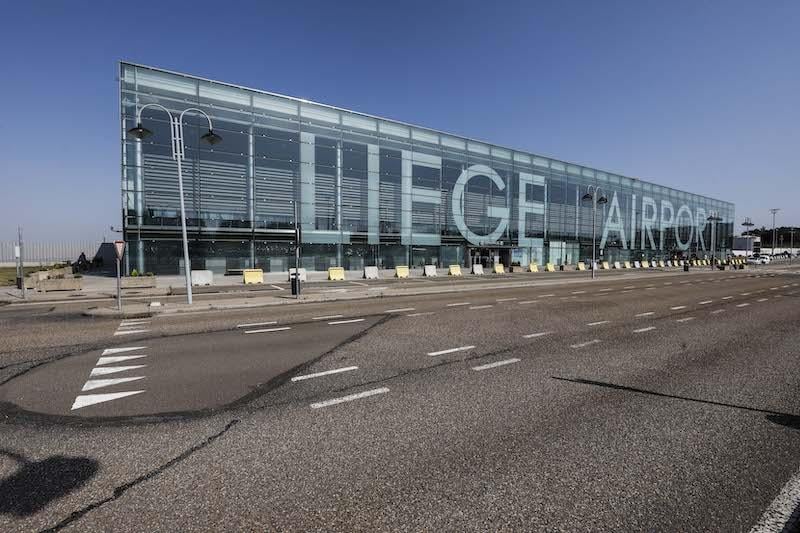Liège Airport Plans For Growth Following Recent Drop In Aircraft Movements

The board of Belgium’s Liège Airport has approved €500 million ($547 million) in investments to improve the airport for the period out to 2040, according to reports in the country’s media.
The strategic plan aims to transform the airport into a multimodal hub connected by rail, water and air, with the €500 million to be invested in phases.
Liège is primarily a cargo airport, and a portion of the planned investment will be used to add 15 parking spaces for widebody freighters.
The first project, however, will be the construction of three unloading warehouses, each 12,500 m2 (134,550 ft.2), which the airport will rent out. The airport also plans to build a maintenance hangar capable of handling two widebody aircraft.
Liège Airport has seen a recent drop in aircraft movements—from 40,000 in 2021 to 28,000 in 2022.
The strategic plan sees this recovering steadily, with a target of 55,000 movements by 2040. The airport will have to reconcile this proposed growth with a reduction in noise pollution for residents of the surrounding area, together with cuts in emissions.
CEO Laurent Jossart says the airport’s strategy is based on market projections from its customers and a gradual growth in cargo volumes. “A master plan is built in several phases. If it turns out that growth is not there, we will perhaps stop at phase one or two,” he tells Belgian newspaper L’Echo.
“We expect a growth rate of 10% to 15% over the first two years. Afterward, it will of course depend on the economic situation. We are relatively optimistic,” he adds.
Jossart says that one aim is to attract more Chinese traffic. Alibaba, China's huge shopping platform, now accounts for 5% of Liège’s business. “It is therefore a Tier 2 client and not Tier 1,” Jossart says. “However, this has given us a lot of visibility in China at the marketing level. We had a lot of media visibility. This allowed us to develop our business with a whole series of new Chinese players.”
The airport has a budget of €60 million to meet environmental ambitions, which means setting stiff targets. “To decarbonize our activities while growing them, we need to decarbonize almost twice as fast to neutralize our current emissions,” Jossart says.
Noise complaints will be cut significantly by increasing curbs on Boeing 747-400 freighters, he adds, and noise regulations will become increasingly stringent, especially after 2030.
Telephone calls to the airport for more details of the investment plan were not answered.





